Entertainment
Moli├©re Performs | His Biggest Works

Moli├©re, whose actual title was Jean-Baptiste Poquelin, stands as a towering determine within the annals of French literature and theatre. Born in 1622 and flourishing through the reign of King Louis XIV, Moli├©re’s works have captivated audiences for practically 4 centuries. His unparalleled means to mix satire, commentary, and philosophical inquiry into his performs has ensured their enduring relevance and widespread acclaim.
Moli├©re deserted a predictable profession path to embrace the then-disreputable career of appearing. He joined quite a few distinguished theatrical troupes, contributing as a director, actor, and playwright. His eager insights into human nature and society, coupled together with his mastery of comedic traditions and revolutionary strategies, have solidified his legacy as certainly one of historical past’s most iNFLuential dramatists.
The Evolution of Moli├©re’s Comedy
Early Influences and Comedic Traditions
Moli├©re’s performs drew closely from established comedy traditions and rising actions. The iNFLuences of Italian comedy and commedia dell’arte, which have been gaining recognition in France throughout his time, are evident in his performs. These traditions offered a framework that Moli├©re ingeniously tailored to mirror and critique French society.
His distinctive model of theatre typically employed components of farce, characterised by exaggerated characters and unbelievable conditions. Nevertheless, Moli├©re’s genius lay in his means to infuse these components with profound social commentary, making a mirror that mirrored the follies and vices of his contemporaries.
The Satirical Edge
Moli├©re was unafraid to critique all areas of society, from the aristocracy to the bourgeoisie. His sharp wit and satirical edge focused hypocrisy, pretentiousness, and greed, amongst different human flaws. This fearless strategy endeared him to the general public whereas often drawing the ire of these he lampooned.
His skillful use of satire is maybe finest exemplified in performs like “Tartuffe,” the place he exposes spiritual hypocrisy, and “The Misanthrope,” the place he critiques social manners and the idea of sincerity.
Moli├©re Performs
1. Tartuffe (1664)
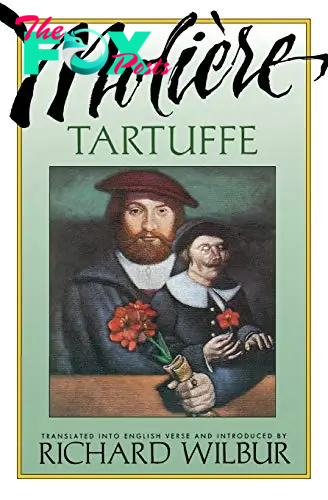
“Tartuffe” is certainly one of Moli├©re’s most well-known and controversial performs. It tells the story of a pious fraud, Tartuffe, who deceives Orgon, a rich man, and practically succeeds in usurping his wealth and ruining his household. The play’s incisive critique of spiritual hypocrisy led to its preliminary banning, however its eventual efficiency cemented Moli├©re’s repute as a grasp satirist.
2. The Misanthrope (1666)
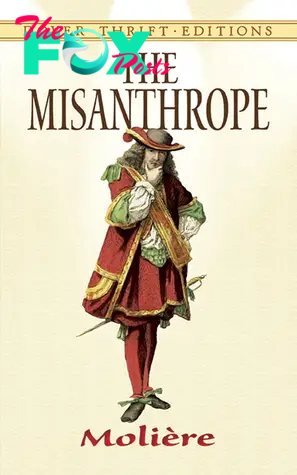
In “The Misanthrope,” Moli├©re explores the battle between honesty and social etiquette. The protagonist, Alceste, despises the superficiality and insincerity of society, resulting in a collection of coNFLicts and misunderstandings. This play is famend for its deep psychological perception and the complexity of its central character.
3. The Faculty for Wives (1662)
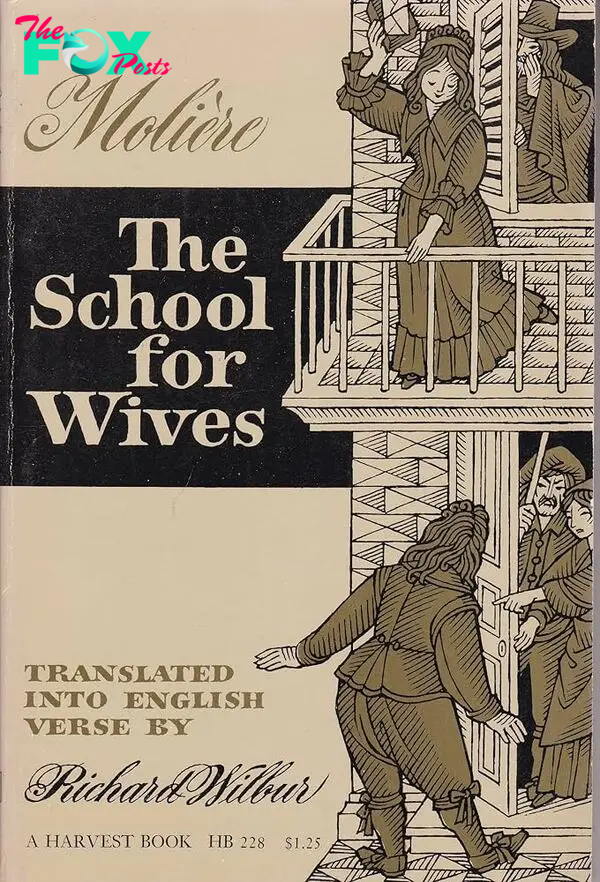
“The Faculty for Wives” focuses on Arnolphe, a person who seeks to regulate and form his ward, Agn├©s, into the proper spouse. The play humorously but critically examines themes of management, schooling, and gender roles, highlighting Moli├©re’s progressive views on ladies’s independence and autonomy.
4. The Miser (1668)
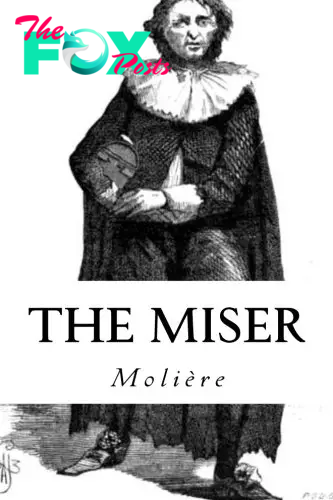
“The Miser” is a comedic exploration of avarice and its results on human relationships. The central character, Harpagon, is so obsessed together with his wealth that it results in a collection of comedic and dramatic conditions. Moli├©re’s portrayal of Harpagon stays probably the most enduring representations of greed in literature.
5. Don Juan (1665)

“Don Juan” presents the legendary character as a captivating however morally bankrupt seducer. The play delves into themes of hedonism, retribution, and the battle between particular person wishes and societal expectations. Moli├©re’s adaptation of the Don Juan fantasy is notable for its wit and the depth of its philosophical questions.
Moli├©re’s Enduring Legacy
Moli├©re’s performs proceed to be carried out and studied worldwide, testifying to their timeless attraction and profound insights into human nature. His means to mix humor with social critique has iNFLuenced numerous playwrights and stays a cornerstone of comedic theatre.
Different Moli├©re Performs
L’Amour M├®decin – 1665 (The Physician in Love): This comedy revolves round Sganarelle, a rich widower, who tries to remedy his daughter Lucinde’s melancholy by consulting numerous medical doctors. The play satirizes the medical career and ends with Lucinde’s lover, Clitandre, disguising himself as a physician to marry her.
Amphitryon – 1668 A comedic play primarily based on classical mythology, it tells the story of Amphitryon, whose spouse, Alcmene, is seduced by Jupiter disguised as Amphitryon. The play explores themes of identification and deception with humorous undertones.
Le Bourgeois Gentilhomme – 1670 (The Bourgeois Gentleman): This satire targets social climbing and pretentiousness. It follows Monsieur Jourdain, a middle-class man aspiring to be a nobleman, who turns into the goal of varied schemes and finally ends up being deceived by these round him.
L’├ētourdi ou les Contretemps – 1655 (The Bungler): The play options L├®lie, a well-meaning however clumsy younger man, who frequently bungles his makes an attempt to win the love of C├®lie. Regardless of his quite a few errors, his intelligent servant, Mascarille, helps him navigate the comedic mishaps.
Les Femmes Savantes – 1672 (The Discovered Girls): This comedy critiques the pretensions and pedantry of realized ladies. It focuses on the family of Chrysale, whose spouse and daughter are obsessive about mental pursuits, resulting in humorous coNFLicts and misunderstandings.
Moli├©re Performs FAQS
What’s the central theme of Moli├©re’s play “Tartuffe”?
The central theme of “Tartuffe” is spiritual hypocrisy. Moli├©re makes use of the character of Tartuffe to show the hazards and absurdities of pretending to be pious for private achieve. The play critiques those that exploit faith for egocentric functions, demonstrating how simply folks may be deceived by appearances.
2. Why did Moli├©re typically incorporate satire in his performs?
Moli├©re integrated satire in his performs to criticize and expose the failings and vices of society, significantly these of the higher courses and the bourgeoisie. His sharp wit focused points akin to hypocrisy, pretentiousness, and social climbing, making his works each entertaining and thought-provoking.
3. How does Moli├©re’s “The Misanthrope” differ from his different comedies?
“The Misanthrope” is distinct from Moli├©re’s different comedies as a result of it delves deeper into the psychological complexities of its characters, significantly the protagonist, Alceste. In contrast to the broader comedic conditions in Moli├©re’s different performs, “The Misanthrope” explores themes of honesty, social manners, and the battle between private integrity and societal expectations [2].
-

 Entertainment1h ago
Entertainment1h agoDid You Correctly Answer This Poughkeepsie Related Jeopardy Question?
-
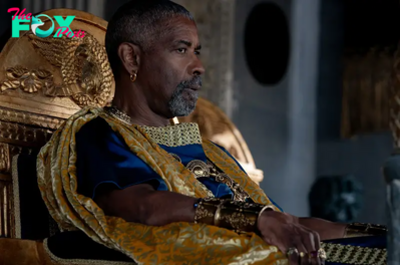
 Entertainment5h ago
Entertainment5h agoWhat to Know About Denzel WashingtonŌĆÖs Gladiator II Character
-

 Entertainment6h ago
Entertainment6h agoChanges Made in New York to ŌĆ£Men WorkingŌĆØ Construction Signs
-

 Entertainment15h ago
Entertainment15h agoRemembering Song Jae-rim: A Look at His Best Movies and K-Drama Performances
-

 Entertainment1d ago
Entertainment1d agoAmerica On CoffeeWeŌĆÖre simply inviting you to take a timeout into the rhythmic ambiance of our breakfast, brunch and/or espresso alternatives. WeŌĆÖre pleased everytime you cease by.SELF CONTROL
-

 Entertainment1d ago
Entertainment1d agoOrange County Choppers Is Ready For Its Big Comeback
-
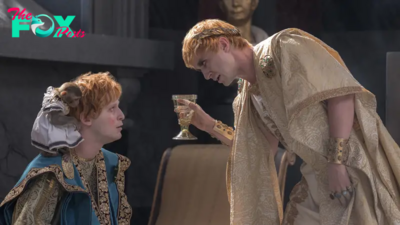
 Entertainment1d ago
Entertainment1d agoThe Real Story of Geta and Caracalla, the Roman Brother Emperors in Gladiator II
-

 Entertainment1d ago
Entertainment1d agoWhat Gladiator II Gets Right and Wrong About Real Fights in the Colosseum



















